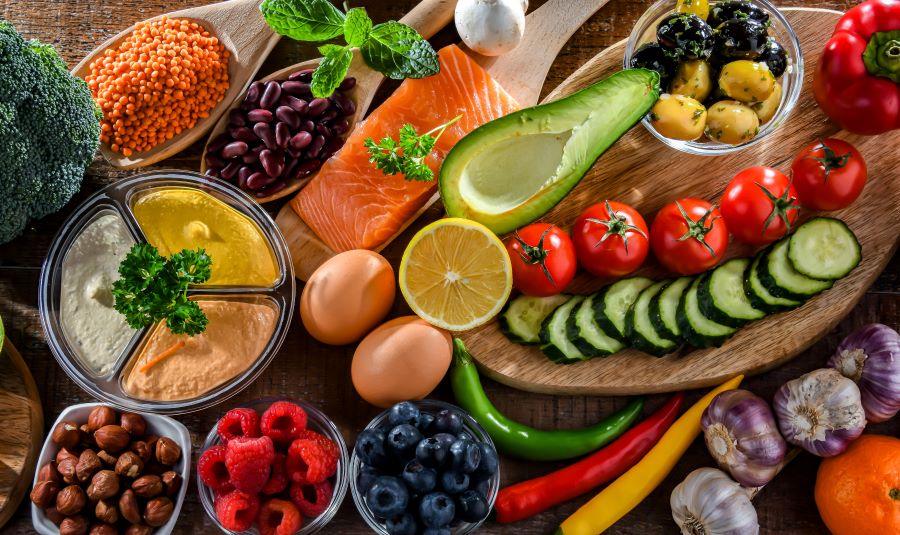Foods That Help Lower Cholesterol Naturally
Managing cholesterol levels through diet is becoming a key strategy for better heart health. Learn which foods like oats, nuts, legumes, and certain fruits, are known to naturally reduce LDL cholesterol and support your cardiovascular system without medication.

What are the best foods to lower bad cholesterol?
When it comes to lowering bad cholesterol, certain foods stand out for their effectiveness. Oats and barley, rich in soluble fiber, have been shown to reduce LDL cholesterol levels. Fatty fish like salmon, mackerel, and sardines contain omega-3 fatty acids that can help increase HDL (good) cholesterol while lowering triglycerides. Nuts, particularly almonds and walnuts, are packed with heart-healthy monounsaturated fats that can improve cholesterol ratios. Avocados, olive oil, and other sources of healthy fats can also contribute to better cholesterol levels when consumed in moderation.
How do fruits and vegetables impact cholesterol levels?
Fruits and vegetables play a crucial role in managing cholesterol naturally. Apples, citrus fruits, and berries are excellent sources of pectin, a type of soluble fiber that can help lower LDL cholesterol. Leafy greens like spinach and kale contain compounds that can help the body excrete excess cholesterol. Cruciferous vegetables such as broccoli and cauliflower have been associated with reduced LDL levels. The high fiber content in most fruits and vegetables also aids in cholesterol management by promoting satiety and reducing the absorption of dietary cholesterol.
Can you list six foods to naturally lower your cholesterol?
-
Oatmeal: Rich in beta-glucan, a soluble fiber that helps reduce cholesterol absorption.
-
Almonds: Contain plant sterols and healthy fats that can lower LDL cholesterol.
-
Beans: High in soluble fiber and protein, helping to reduce cholesterol levels.
-
Salmon: Omega-3 fatty acids in fatty fish can improve cholesterol ratios.
-
Apples: Pectin in apples can lower LDL cholesterol and increase HDL cholesterol.
-
Garlic: Contains compounds that may help lower total and LDL cholesterol.
These foods, when incorporated into a balanced diet, can contribute significantly to natural cholesterol management.
What natural dietary changes improve heart health?
Improving heart health through natural dietary changes involves more than just focusing on specific foods. Adopting a Mediterranean-style diet, which emphasizes plant-based foods, whole grains, lean proteins, and healthy fats, has been shown to improve cardiovascular health and cholesterol levels. Reducing saturated and trans fats by choosing lean meats, low-fat dairy products, and avoiding processed foods can have a positive impact on cholesterol levels. Increasing fiber intake through whole grains, legumes, and vegetables can help lower LDL cholesterol. Additionally, limiting added sugars and refined carbohydrates can improve triglyceride levels and overall heart health.
How do plant-based proteins affect cholesterol levels?
Plant-based proteins, such as those found in legumes, soy products, and nuts, can have a significant impact on cholesterol levels. Soy protein, in particular, has been shown to lower LDL cholesterol when consumed regularly. Legumes like lentils, chickpeas, and black beans are rich in soluble fiber and plant proteins, which can help reduce cholesterol absorption. Nuts and seeds provide healthy fats and plant sterols that can improve cholesterol ratios. By replacing some animal-based proteins with plant-based alternatives, individuals can naturally lower their cholesterol levels and reduce their risk of heart disease.
What role do whole grains play in cholesterol management?
Whole grains are essential in managing cholesterol levels naturally. They contain complex carbohydrates, fiber, and various nutrients that contribute to heart health. The soluble fiber found in whole grains like oats, barley, and quinoa can help lower LDL cholesterol by binding to cholesterol in the digestive system and removing it from the body. Whole grains also help regulate blood sugar levels, which can indirectly affect cholesterol metabolism. Additionally, the antioxidants and phytochemicals present in whole grains may have protective effects on the cardiovascular system, further supporting cholesterol management and overall heart health.
By incorporating these foods and dietary strategies into your daily routine, you can take significant steps towards naturally lowering your cholesterol levels and improving your heart health. Remember that while diet plays a crucial role, it should be part of a comprehensive approach that includes regular physical activity, stress management, and, when necessary, medical intervention under the guidance of a healthcare professional.
This article is for informational purposes only and should not be considered medical advice. Please consult a qualified healthcare professional for personalized guidance and treatment.




